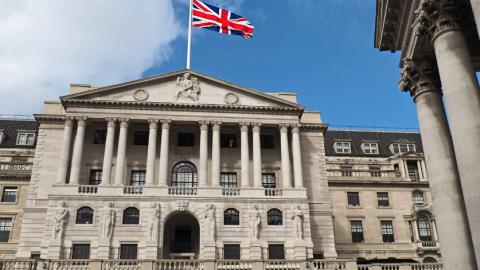
Similar Posts

Nikhil Rathi Reappointed as FCA CEO: A New Era in Leadership
Nikhil Rathi has been reappointed as the CEO of the Financial Conduct Authority (FCA), highlighting the organization’s commitment to strong leadership in financial regulation during a transformative period for the sector. Rathi, known for his effective reforms, has previously strengthened regulatory frameworks, improved transparency, and promoted innovation. His reappointment ensures continuity in leadership, a strategic vision for adapting to market changes, and a focus on consumer protection. As he resumes his role, Rathi is set to address critical issues such as consumer safety, market integrity, and technological integration in financial services, shaping the future of UK financial regulation.

EU AI Act: New Unacceptable Risk Provisions Now in Effect for AI Regulations
The EU AI Act will significantly alter the artificial intelligence landscape in Europe starting February 2, 2025, banning AI systems classified as posing ‘unacceptable risk’ and imposing fines up to EUR 35 million for non-compliance. Key provisions include training requirements for organizations and prohibitions on harmful AI practices, such as deceptive techniques and real-time biometric identification. The Act applies globally, affecting all organizations using AI in the EU, including those based outside Europe. Companies have about 18 months to prepare for compliance by cataloging AI systems and collaborating with third parties to meet the regulations.

Trump’s Bitcoin Reserve Plan Fails to Move Markets: What You Need to Know
Bitcoin’s recent price dropped about five percent to $85,000 before recovering, following former President Trump’s announcement of a ‘Strategic Bitcoin Reserve.’ This reserve will use tokens seized by the government through asset forfeiture, with a focus on allowing commerce and treasury secretaries to develop cost-neutral strategies for acquiring Bitcoin. Additionally, a separate US Digital Asset Stockpile will manage non-Bitcoin cryptocurrencies. The US currently holds approximately $16.4 billion in Bitcoin and $400 million in other cryptocurrencies. Trump’s statements have spurred discussions on government involvement in the crypto market, prompting investors to watch for future developments.

Senate Approves Measure to Eliminate CFPB Oversight on Big Tech Payment Apps
Recent Senate developments regarding the CFPB rule have ignited debate over regulatory oversight in fintech. Republicans, led by Senators Pete Ricketts and Mike Flood, support a resolution against the CFPB’s authority, which now awaits House approval. The CFPB rule, finalized last year, mandates large nonbank entities, including tech giants like Google and Apple, to follow federal regulations. Critics argue it hampers innovation and lacks clarity. Meanwhile, concerns arise over Elon Musk’s potential conflicts of interest due to his roles with X (formerly Twitter) and the CFPB, prompting Democratic senators to call for an ethics investigation.

Unveiling the EBAday 2025 Agenda: Key Insights and Highlights!
The upcoming EBAday 2025 event will focus on the latest trends in banking and fintech, featuring insightful discussions and networking opportunities. The agenda includes sessions on the future of payments, addressing issues like instant payments, financial crime, and liquidity management. Attendees can participate in panels on industry challenges, digital innovation, and new payment processes. Day two will cover topics such as cross-border payments and open finance initiatives. Networking opportunities will be abundant, with social events planned throughout. The event will also feature start-up pitches on the FinTalks Stage and showcase leading fintech platforms in the Fintech Zone. Register now to attend.

Bank of England Warns: AI’s Impact on Financial Stability Under Scrutiny
As global investments in artificial intelligence (AI) surge, regulators are working to balance innovation with risk management. The Financial Policy Committee highlights several risks, including data flaws, correlated positions among firms, and systemic vulnerabilities from reliance on a few AI vendors. Such dependencies could lead to operational failures during crises, impacting essential services. AI also poses cybersecurity threats, benefiting both banks and malicious actors. To navigate these challenges, the committee stresses the importance of monitoring AI-related risks to determine necessary safeguards, emphasizing collaboration between innovators and regulators for safe and effective AI development.
